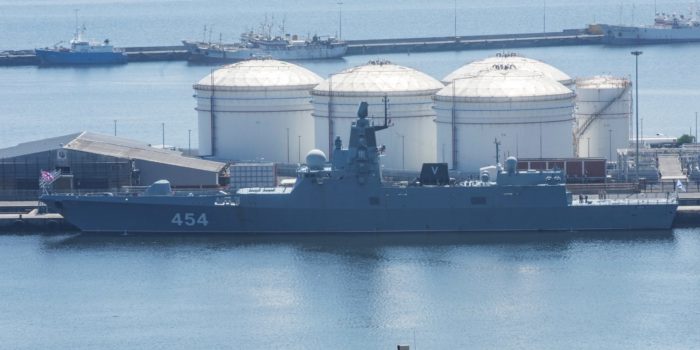Russia generated €242 billion ($253.8 billion) in fossil fuel revenue in the third year of its war in Ukraine. Some of this income came indirectly from Western countries despite sanctions, according to a new report shared with Newsweek.
The report, compiled by the Centre for Research on Energy and Clean Air and campaign group B4Ukraine, reveals Russia has accumulated €847 billion in fossil fuel revenue since the war began in 2022.
"This would hurt the economies of these third-party countries," Mark Temnycky, a non-resident fellow at the Atlantic Council's Eurasia Center, told Newsweek. "The third-party states may also reconsider purchasing Russian crude."
Russia's total fossil fuel earnings since 2022 stand in contrast to the $199.1 billion it earned from fossil fuel exports in 2021, before its invasion of Ukraine. The revenue is also several times larger than the $211 billion the Pentagon estimates Moscow spent on the war from 2022 to 2024.
Crude oil was Russia's primary source of income, generating €104 billion in revenue. Other revenue came from gas, coal, and liquefied natural gas.
The researchers found that G7 countries imported €18 billion of oil products from six refineries in India and Türkiye in the third year of the war. Of this amount, €9 billion was allegedly refined from Russian crude oil. This generated an estimated €4 billion in tax revenues for Moscow.
"Pursuing such policies by Western countries would result in greater restrictions on the Russian energy market," Temnycky said. "This would lead to a decline in Russian energy sales, and it would weaken the Russian economy."
Many countries have not placed sanctions on Russia. The report indicates some fuel products have made their way to the West through third-party states including China, India, and Türkiye.
The future of sanctions remains uncertain under US President Donald Trump, who has pledged to "end the war in Ukraine." Trump has taken a more lenient approach to President Vladimir Putin than his predecessor, Joe Biden, refucing to call putin a dictator. Instead Trump called Ukrainian President a dictator without elections.
Moscow's forces invaded Ukraine on 24 February 2022. Western countries have since worked to stop Russian oil imports. In March 2022, Biden announced a US ban on Russian oil imports. In January 2025, he issued sanctions to block oil projects.
Read also:
- Bloomberg: For the first time, Russia’s fuel output in doubt as Ukrainian drones hit three key refineries
- Fuel oil from massive Russian tanker spill reaches Ukraine’s shores
- EU 16th sanctions package against Russia targets shadow fleet, banks, media outlets, third-country trade





